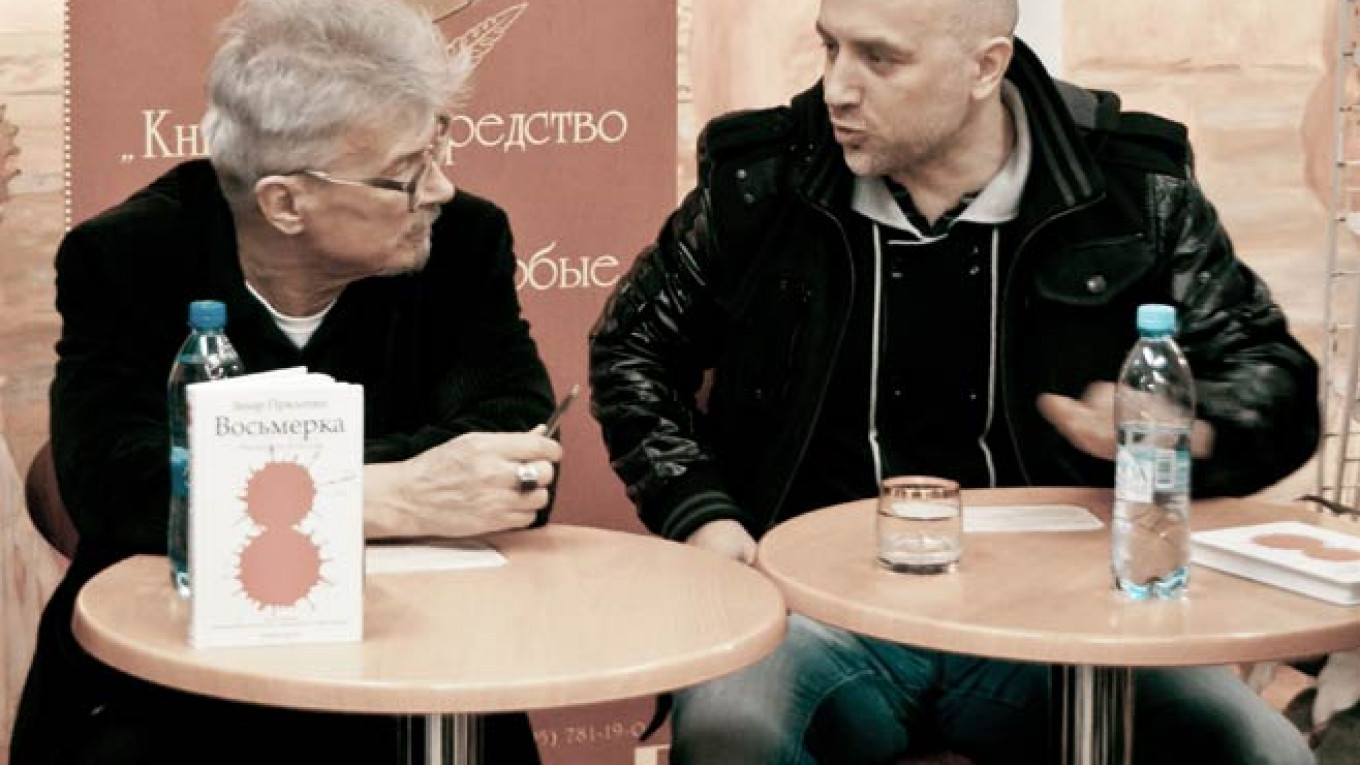As the 2014 U.K.–Russia Year of Culture gets into full swing, a wide array of events in London are allowing locals to become better acquainted with Russian art, theater and literature. At a recent discussion titled "In Search of the Essence of the Modern Russian Novel," Russian authors Zakhar Prilepin and Yevgeny Vodolazkin discussed the essence of the modern Russian novel.
The choice of this particular pair of authors seemed to promise an interesting debate, given their striking differences. While both men are prize-winning Russian novelists, Prilepin is known to be a highly political figure and member of opposition politician Eduard Limonov's National Bolshevik Party. Vodolazkin, on the other hand, generally avoids public life and focuses on philosophical, esoteric novels.
The debate began with relative agreement between the pair, as Vodolazkin agreed with Prilepin's statement defining the purpose of the modern Russian novel as "moving away from traditional norms in order to solve the main issues of humanity such as evil, militarism and xenophobia." Vodolazkin similarly noted that the essence of the modern Russian novel lies in "not being afraid of pathos, grand gestures or metaphysics." Both authors agreed that this was a far cry from the literary decline of the 1990s, when Russian writers generally avoided grand metaphysical issues.
While agreeing on the essence of the modern Russian novel, Prilepin and Vodolazkin expressed different approaches to producing the modern Russian novel based on their political views. Vodolazkin said that he was "anti-political," and suggested that the disadvantage of utopia was that "everyone is treated the same," and that the "collective approach is horrific," as everyone is made to strive for the same ideals. Vodolazkin's best-known novel, "Laurus," is a reflection of his views, representing the personal growth and struggle of one individual in ancient Russia.
Conversely, Prilepin's views are "nearest to contemporary times — the times of revolutions, state-wide destruction and political turmoil." This line of thought is reproduced in Prilepin's work — the author feels that "civil war is never over." Prilepin's nationalistic utopian ideals are for him based on the fact that "Russia is about emotions and huge problems." These large schemes are present in all Prilepin's books like "Sanka," which predicted the Euromaidan movement in Ukraine or "Pathologies," a book about the war in Chechnya.
However, despite surface disagreements, the authors agreed that on a wider scale, all authors focus on the same universal themes, both in modern Russian literature and worldwide. According to Prilepin, "there is no history." Universal values like "love, goodwill and compassion" will always exist, and "real literature shows that there is no time or space."
Contact the author at [email protected]
A Message from The Moscow Times:
Dear readers,
We are facing unprecedented challenges. Russia's Prosecutor General's Office has designated The Moscow Times as an "undesirable" organization, criminalizing our work and putting our staff at risk of prosecution. This follows our earlier unjust labeling as a "foreign agent."
These actions are direct attempts to silence independent journalism in Russia. The authorities claim our work "discredits the decisions of the Russian leadership." We see things differently: we strive to provide accurate, unbiased reporting on Russia.
We, the journalists of The Moscow Times, refuse to be silenced. But to continue our work, we need your help.
Your support, no matter how small, makes a world of difference. If you can, please support us monthly starting from just $2. It's quick to set up, and every contribution makes a significant impact.
By supporting The Moscow Times, you're defending open, independent journalism in the face of repression. Thank you for standing with us.
Remind me later.






